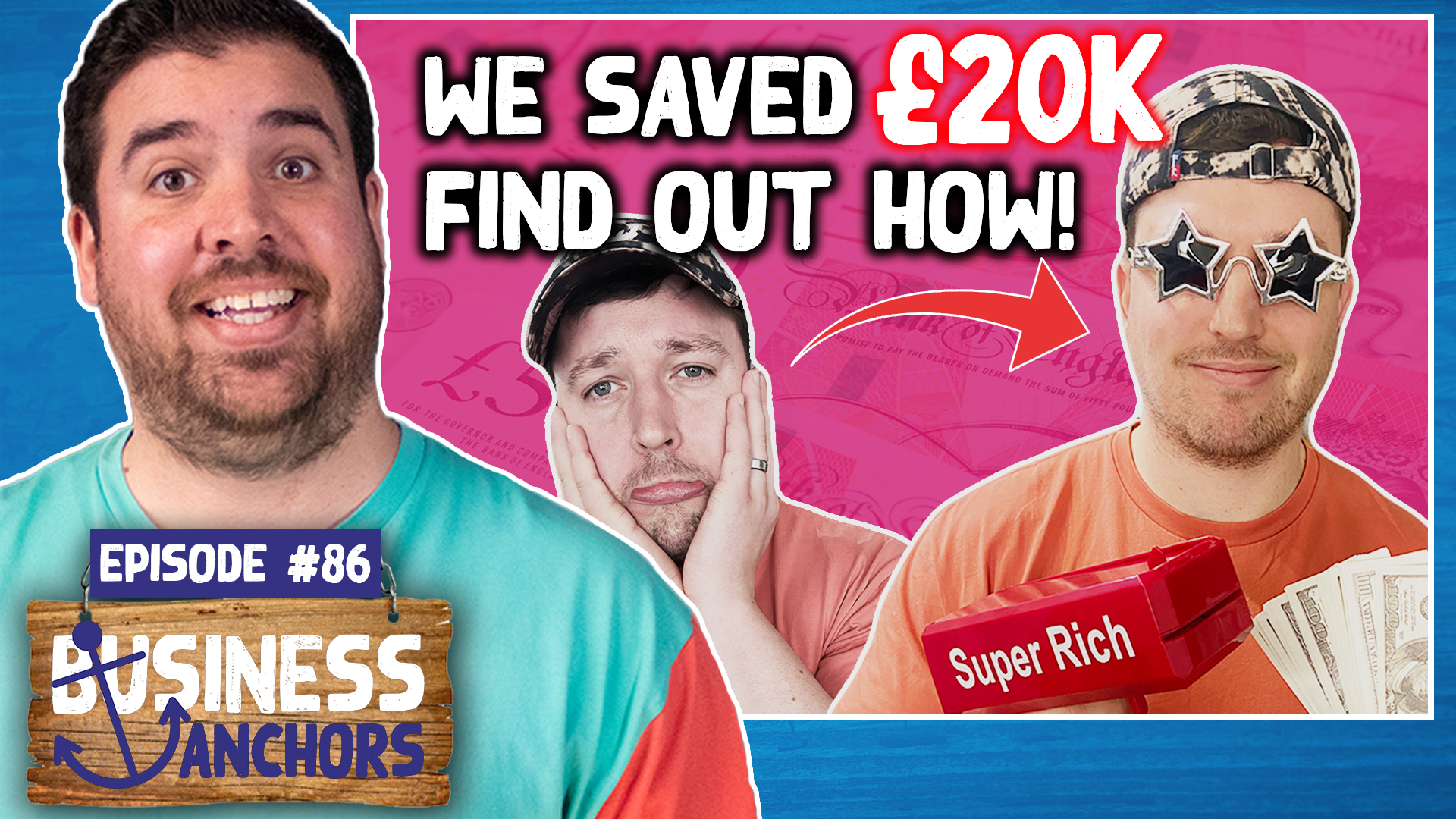If you’re looking to save tax, this is for you. In this episode, you’ll learn some simple Tax Planning actions you can take to save tax.
We recently had a deep-dive session with our Accountants to understand how we could use Tax Planning to save tax. We were shocked at how much we could save (by making fairly simple changes).
Everything we share in this episode is above board. This isn’t financial advice, we’re not experts, we’re just sharing what we’ve learnt from our Accountants (a massive shout out to Telfords Accountants.
I know this episode sounds pretty boring, but any business owner or employee should listen if they want to save some money.
00:00 – 01:11 Intro
01:12 – 05:17 Why tax planning is so important
05:18 – 06:43 The definition of Tax Planning
06:44 – 07:53 The definition of Tax Avoidance
07:54 – 09:13 The definition of Tax Evasion
09:14 – 11:43 Lloyd’s thoughts on Tax Aoidance
11:44 – 30:27 Tax Planning Tips
30:28 – 30:36 Outro

0:00 Pat
Hi, I’m Pat, the podcast editor here. Today anchors, Dan and Lloyd are talking taxes. No, no, no, no. Okay, look, don’t click away. Because today, we’re talking about tax planning and the changes you can make to minimise your tax liability, potentially saving 1000s.p>
0:18 Lloyd
The government says we tax you on these things. And we allow you to do these things. And it’s going, Oh, you allow us to do those things. To help us grow our business, we will be allowed to do that.
0:30 Pat
You’ll hear about what they’ve learned, and the actions they’ve taken that have saved the company a projected amount of over 20,000 pounds.
0:38 Lloyd
Those business savings, like I said, depending on what sort of business owner you are, you could just take it out. Or you could reinvest it into the business or you could hire more people or you could give people pay rises, you know, that’s up to you.
0:52 Pat
Right, let’s get stuck in pen and paper at the ready. This is episode 86 of the business anchors podcast.
1:11 Dan
This sounds so boring. Lloyd, why should anchors continue listening to an episode about tax.
1:18 Lloyd
It is not going to be boring. And I’ll tell you what I tell if you run a business, you probably are either running a lifestyle business. So basically a business at the size that you as an owner can have a nice lifestyle, making enough money and having the things you want for you and your family to have a lovely life.
Or you’re trying to scale your business to be massive, make loads of money and be like a gazillionaire both require you to make as much money as you can. In reality, just one you reinvest more than the others.
1:55 Dan
Okay.
1:56 Lloyd
And if you can plan your tax effectively, every single year, you can have loads more money.
2:06 Dan
Okay.
2:06 Lloyd
Does that make sense?
And I guess why I’m more excited than you and everyone listening is because we’ve recently gone through a process of basically looking at our taxes and seeing what we can do.
And if we’re doing things right and efficiently and all that sort of thing, and found out that we weren’t and our business could save a huge, huge amount of money that we can reinvest into our team or equipment or more.
Or we could be greedy business owners, and just take it all. Ah, my phone’s ringing, but it’s not supposed to be on vibrate. p>
2:49 Dan
So we’ve got a bit of a history with accountants have my Lloyd.
2:53 Lloyd
Yes. So we had an old account, that was absolutely rubbish.
2:58 Dan
And we did a podcast episode about episode 19 are all accountants rubbish, and we pissed off a lot of accountants didn’t we?
3:05 Lloyd
Accountants and people that have loved ones that are accountants saw the title and got angry. But if they’d have listened or watched, they’d see that we were saying like, our one has been rubbish.
And we were shocked. And going into what we heard about brilliant accountants we’ve now switched. This was years ago now but to Telford’s accountants.
3:37 Dan
Mark Telford who’s bloody good.
3.39 Lloyd
Legend. And I couldn’t think more highly about our accountants at you know, they’ve helped us with this kind of thing that we’re going to be talking about and helped us in a lot of ways and a proactive in helping us have what we need to grow our business.
3:54 Dan
Go to Telford’s if you want good accountants, everyone.
3:57Lloyd
Call to action, accountants. But seriously, also like DM me and Dan, if you want to get put in touch with Mark Telford if you want better accountant stuff because they’re brilliant.
4:07 Dan
Do you know how I know how excited you are about this episode?
4:11 Lloyd
No?
4:12 Dan
Because when I went to sneak off for a sneaky McDonald’s the other week, and just have some time to myself, sometimes I like to do thatp>
4:20 Lloyd
You do, more often than I, I first thought actually.
4:23 Dan
You just wouldn’t stop ringing me and telling me about these things we can do to be better with our tax.
4:30 Lloyd
Yeah, no. And it sounds boring. But the more I was discovering, imagine, you know, we work we all work so hard. The team here and we as business owners work hard to try and make sure the business makes enough profit to be viable and to grow and for us all to earn more and work on the more exciting stuff.
And I was just discovering more and more things like oh, imagine just finding out this year, we could have an extra 3000 pounds, think how hard that we usually work to make 3000 pounds, but it was just a fairly simple thing we needed to do to make that happen.
5:04 Dan
Just to clarify, for me the stupid person. Yeah, this isn’t avoiding taxes we’re not like telling people to do sneaky stuff, though.
5:13 Lloyd
Interesting. You say avoiding tax, Dan, some of it might be.
5:17 Dan
Oh, okay.
5:18 Lloyd
But to be clear. Okay. Just so no one thinks we’re busy, busy? We are busy, I was meant to say dodgy. We’re not doing anything illegal. And I don’t think we’re doing anything immoral. You can judge that. But just to be clear, okay, I’ve written this down One thing, tax planning.
5:44 Dan
Okay, is that what we’re doing now?
5:45 Lloyd
This is the main thing that we’re doing tax planning. So listen to the definition of tax planning. As part of good governance, companies will seek to minimise their tax liability through tax planning, making the most of the tools and mechanisms which the government makes available to them specifically for this purpose, allowances, deductions, rebates, exemptions, etc.
They all make choices about how to pursue their business goals in the light of all the implications, which include the tax consequences. Okay, that’s tax planning, which is mainly what we’re talking about. So the government says, we tax you on these things, and we allow you to do these things, and it’s going oh you allow us to do those things to help us grow our business, we will be allowed to do that.
Oh, you tax this thing? Okay, we’ll be careful not to do too much of that and get tax loads. So that’s tax planning. I think everyone I spoke to agrees. Good idea. We weren’t doing well enough. We’re going to talk about it. Next Level tax avoidance.
6:45 Dan
Oh, that doesn’t sound as good.
6:47 Lloyd
Final level. Okay. Tax avoidance is more of a grey issue. The term tax avoidance is used to refer to legitimate, but maybe aggressive use of things such as financial instruments and other arrangements to obtain a tax result not intended. Or anticipated by the government. The use of overseas tax havens is one example. Most of the debate about tax avoidance has centred on the taxes businesses pay on their profits, corporation tax in the UK, but other taxes can also be affected, including VAT.
7:20 Dan
So that’s not illegal, but it’s a grey area?.
7:22 Lloyd
No, it’s completely legal. But I suppose the difference in their tax planning is the government’s view of what should be taxed and not. And you going? Oh, yeah, thank you. Thank you. That’s exactly as you say, tax avoidance is going Oh, hang on, let this rule that you cannot be taxed to do that. That’s not what the government intended. But we want to do our best for our business to make sure we can grow and have the money we need to grow. So we’ll make sure we make the most of those.
7:55 Dan
I feel like this goes down to another level.
7:56 Lloyd
There’s s a third level.p>
7:57 Dan
Third level!
7:58 Lloyd
Which to be clear. We are nowhere near and would never consider. Okay. Tax avoidance is different to tax evasion.
This refers to a situation where a company tries to reduce tax liability by falsely suppressing income or inflating expenditure, recording fictitious transactions, etc. evasion is fundamentally illegal. So just to be clear, from those kinds of definitions, tax planning, good idea and sensible, tax avoidance, could be a good idea. A bit of a grey area, though, and morally questionable, worth the debate. Tax evasion is basically, just lying because you’re greedy. p>
8:48 Dan
And I’m glad you saw that right. So the things we’re gonna be talking about in this episode? Don’t go to the bottom?
8:54 Lloyd
No, don’t want to.
8:57 Dan
In the bottom category.
8:58 Lloyd
That could not go down as a business expense. Okay. Would certain industries maybe it could. So what we do and what we talk about not tax evasion, don’t evade tax.
9:12 Dan
Okay. Okay. I think we got it, we got the picture.
9:13 Lloyd
Interesting, though, before we get into these ways of saving you hundreds of 1000s of pounds, which we’re going to do listeners, previously, my personal view, being a brilliant person. Yeah. And you’re just so ethical, brilliant morals. I used to completely steer clear of the tax avoidance, you know, in what I would want to do for the business tax planning. And so that tax avoidance, the middle one, yeah, the middle.
And we weren’t very good at the tax planning the one so we will just be fine. Yeah. But the way I thought about it, I kind of, I mean, the same tax avoidance, I thought, well, that sounds dodgy. We don’t want to be a dodgy business. I mean, never go near there. My views have changed my view guide so people may disagree.
But over the last couple of years, in my personal view, I believe a lot of the ways that we spend money in our business, I think have a bigger positive impact than the way the government spends money. So I used to think, well, we want to pay as much tax as we can, that’s the moral thing to do.
And now, because I feel we’ve got so many positive plans, we have our positive impact plan we’ve been putting together and where we’re trying to do things to positively affect the world and the local community and all this sort of thing.
And I now think my personal view is if we can completely legally reduce some of our tax and spend it in those positive ways and offer people more jobs and that kind of thing. .
10:04 Dan
I guess that only counts if you are spending the money in a good way, though, rather than us taking it.
10:50 Lloyd
If you and I were just taking huge salaries, I would feel differently. I guess you’d have to be on the inside of this to truly know.
11:02 Dan
To some listeners, that could just sound like an excuse. As if we are like we trust ourselves with our money. So we’re not gonna pay as much tax.p>
11:12 Lloyd
I completely agree, it sounds like that. And so I think as business owners only, you know, in reality, if you’re doing it, because you want to earn more money, or because you feel it’s the right thing to do.
11:26 Dan
One of our values at Knowlton is to do the right thing. Are we doing the right thing? I think we are.
11:32 Lloyd
Yeah, that’s why it’s the question, I guess I know, in my mind, from what I currently know, I might learn things or change my opinion. I feel we’re doing the right thing and having the most positive impact we are on the world.
11:44 Dan
So I feel like that’s a really good setup. Yeah, I feel we’ve got a good background. Now. I think all of us want to hear Lloyd, what do we do for effective tax planning? Or what things can we do? Because you’ve called me up and told me loads of stuff.
12:02 Lloyd
So listeners your going to gain some value. For our business from making these changes. We’re projecting a saving of 21,000 pounds.
12:12 Dan
Oh, yeah. Geez.
12:16 Lloyd
So that saving just to be clear, comes from savings that hopefully our employees can make, savings that Dan and I as business owners can make, and savings that the business can make. So those business savings, like I said, depending on what sort of business owner you are, you could just take it all.
Or you could reinvest it into the business, or you could hire more people or you could give people pay rises, you know, that’s up to you. But that’s how this is made up. And thinking about it over 10 years, that’s 200,000 pounds. If your business stays the same size, think about what you do to have an extra 200,000 pounds. Yeah, in the next decade. So now going into it, Dan.
12:56 Dan
Yep.
12:57 Lloyd
Tax, can you tell I love tax?.
13:00 Dan
You’re getting excited by this.
13:01 Lloyd
So I’m just going to go into some of the things that Telford’s accountants have helped us with again, Telford’s accountants are the experts. Speak to us and we’ll put you in touch. Yeah, do we need to do like, this? Isn’t financial advice? Anyone? Yeah. Oh, yeah, we should. Yeah, this Yeah. So I was putting off taking these, I kind of knew that we should, but I was putting off taking these actions previously because there’s lots of important stuff to do in the business. I was thinking, I’ll get to that at some point on my to-do list until I went through it with our accountants and realised there’s a significant difference if we do it this way.
This is not financial advice. We don’t have a clue what we’re doing financial advice. I’m telling you what we’ve done, and what, what we’ve been told to do, and think, Oh, that’s great. Don’t listen to me for advice. This is just purely for entertainment.
Okay. So firstly, I think this is the one that probably most business owners might already do. Yes, I think potentially they don’t. But if you don’t, you need to, so it’s paying yourself in the most tax-efficient way as business owners.
So Dan, and I, how we take our salaries, obviously employees have to be paid by pay normal salary. As business owners, there are different options. So there’s a 2000 pounds a year dividend allowance.
So as a business owner, each individual can take 2000 pounds out completely tax-free. And that’s, that’s on top of the 12 and a half 1000 that you can take completely tax-free for through tax-free through your normal pay salary. So that’s a yes thing.
14:48 Dan
So that’s like 14,000 not taxed.
14:50 Lloyd
Yeah, yeah, exactly. And then, for most people, it makes sense to pay yourself the low salary of 12 and a half. And take the rest of whatever you want to make up your salary in dividends. And so I encourage people to look at that because, on dividends, you don’t pay things like National Insurance and employers’ national insurance.
And I was shocked about how much that equates to Dan and me, and also Dan, and I haven’t even we haven’t increased our salary because of that. We’ve just kept it the same. But with the changes we’ve made, we’ve got a chunk of money left in the business each month, that would have previously been taxed.
And again, this is all this is just doing completely legal things and finding the way you’re advised to do not advice by me, though, not financial advice. So simple but effective.
15:48 Dan
So that’s the one that most people will probably already be doing. But if you’re not as that’s the biggest one that does that.
15:53 Lloyd
Because that’s something quickly you can change whoever’s doing your payroll or if you’re doing it yourself, you can kind of Google, there’s Google comparison of pay and dividends, and there are calculators to work out for you. So really easy.
16:09 Dan
Cool.
16:10 Lloyd
Do you want the second one?
16:11 Dan
Give me the second one Lloyd. Save me money.
16:12 Lloyd
Maximise the company’s private pension contributions. So pension?
This one, I was really, again so sound simple, and it’s probably listening to thinking do that. But for our pensions, Dan, we can have a private pension and put money into that pension, and it counts as a cost to the business. So rather than us attack ladies, so before anything’s taxed, it gets paid into our pension.
So when we’re oldies, we can have a life, hopefully. But if you think about it, if the employer is making that contribution if our businesses, that also means that we make less profit, to get down counts as a cost. So effectively, and again, there might be limits on this I’m not aware of, but if you just put all of your profit into your pension into the pension, there wouldn’t be any tax to pay on your profit, because the company has limits on that, though, potentially. Okay.
Not business advice. But are there any limits? Yeah, but certainly at the level we are, we’re not, we’re not fancy, we’re not millionaires, we’re not operating extremely high level. It’s it saved us a significant amount. Doing it that way, Dan, and I previously was, were paying into pensions as kind of employees from our contributions, as well as the employer contribution, like with all of our team, but didn’t realise that that’s, I think that can pay more into a pension.
Yes, and the thing with that, obviously, boring advice, pension is always a good thing to put money into. But if you think like this saving that Dan and I realised can be made that that can either allow us to put more money in our pension, but, overall, our financial situation not change. Or we can have more money in the business, both over the long period long, long term could have a huge effect.
So if you think if we put more into our pension now, because that’s invested and over time, fingers crossed, that will increase supply, if we put, you know, if there’s an extra 200 pounds a month in your pension in over the years that have a huge that can equate to an extra, lots of money.
So positive. Or if, if you just leave that money in the business, that’s kind of the extra that you’re saving, you can reinvest that. And I think as business owners, if you’re a sensible business owner, rather than just taking the profit out, you’ll be reinvesting any money that’s left in the business. So if like I said, all these savings, equate to 20,000 this year, we can reinvest that into our business by either paying our team more or hiring someone new or getting new gear and then that money can multiply by two by five by 10 over the years.
So pay yourself in the right way, as a business owner, pay more into your pension. Number three, we got the three I didn’t realise this sort of thing, probably obvious life insurance. So anyone that’s homeowners, usually people end up getting life insurance as part of their mortgage is a requirement by most lenders, I think. So basically, if one of us dies, hopefully, most of your mortgage gets paid off your family is hopefully okay and that kind of thing.
Again, I didn’t realise this could be as business owners, we can pay this through the business. So again, we pay for it before we’re personally taxed on that money. So we save that and because the company paying for it again, it’s a cost to the business. So the company makes less profit and pays less tax on profits. So double whammy again. And simple just to change. You know, you can be your current life insurance policy and change the account that it’s coming from and include it as a business.
20:20 Dan
Makes sense, yeah.
20:21 Lloyd
Boring and effective.
20:23 Dan
So pay your life insurance through the company. That’s the third one. Cool.
20:26 Lloyd
Yeah. Simple.
20:28 Dan
I need to change mine, then I need to do that.
20:30 Lloyd
Yeah, both of us do. We’re planning to do tax planning. Yeah.
20:35 Dan
Number four number. Save us more money Lloyd.
20:37 Lloyd
This one, I like trivial benefits, because it’s beneficial for you as business owners and your employees. And I think it’s something that we’re planning to utilise as much as we possibly can. And helps everyone involved, which is good.
So these are trivial benefits. So basically, this is anything except cash, that’s less than 50 pounds. That can be given as gifts to the team. So is that items, vouchers, or, I think, an example of this that we’ve done recently, one of our employees moved home. And as a business, we wanted to get a moving housewarming gift
So if we were to give him a bonus, or she could be anyone, they would be taxed on that. Yeah, so if we were like, oh, you know, this person’s working hard, they’re moving house, and we’d like to give them a little bonus in their pay packet, they’re going to be taxed, our business is a cost to us, it would still be our they’re going to be taxed.
So they’re going to get less value, we’re going to pay more employers National Insurance, they’re going to pay more national insurance. Whereas if you’re doing it this way, if you could get perhaps a gift card, as long as it’s less than 50 pounds or a maximum of 50 pounds, it counts as business costs.
So the business makes 50 pounds less profit, which is the same as before, but the business doesn’t pay employees national insurance, and the person who receives that gift doesn’t pay, it still gets the full 50-pound value.
22:24 Dan
And what’s that called again Sorry?
22:25 Lloyd
Trivial benefit, trivial benefit. So I believe, this isn’t financial advice, check yourself a limit of 300 pounds per year for direct. So I and Dan couldn’t just pay for ourselves and gift cards. We could get 300 pounds a year that way.
But I think employees don’t quote me on this, but I don’t think that limit counts. So this doesn’t have to be gift cards, that’s just obviously a good way of passing value to your employees without them being taxed. But this could be wine, this could be…
22:59 Dan
Cigarettes?
23:00 Lloyd
I’m not sure, if I assume it probably, I don’t know, or you know, chocolates, or whatever. But you know, presents that your employees would appreciate most, they can get the value without being taxed, and the company saves money. So we’re going to try and make the most of this. Okay, I think that’s a good one because it affects everyone. Yeah, positively feel benefits. Love it.
23:23 Dan
Okay. Is that a four? So number five?
23:25 Lloyd
Number five, there’s a load that I won’t go into as much detail but five childcare? So yeah, just this but you know, those things in business, you kind of thing I’ve heard is I don’t know how it works, and all that kind of thing. So if you’ve got employees that currently pay anything up to 2000 pounds for childcare, you can set up a scheme that comes out of the business account and comes out of their pay packet before they get it. That saves them.
So that salary sacrifice scheme for childcare allows for up to 2000 pounds of childcare for anyone in the business to be paid by the business and therefore paid before tax. So again, that usually equates to like a 20% saving on that.
. So if you’ve got employees that currently pay anything up to 2000 pounds for childcare, you can set up a scheme that comes out of the business account and comes out of their pay packet before they get it. That saves them.
24:09 Dan
I’ve done this recently.
24:10 Lloyd
We’ve done this for Dan, and anyone on our team in the future that has children and want childcare, we’ll be offering that.
24:17 Dan
So you’re saving 20% On what you’d normally pay for childcare.
24:21 Lloyd
Yeah. So this is the benefit to the employees or us as business owners 20% of childcare, which I think is if that is possible to give to your employees, why wouldn’t you? Yeah. So I think that’s a brilliant one. And, parents that are employees, they’ve got a lot going on a lot to manage. If you want them to perform at their best, you want them to be able to have great childcare for their children and not worry about the financial impact. So any help I think it’s really good and as business owners, we have the same ability to do that. Yes. So good. Quickfire round?
And, parents that are employees, they’ve got a lot going on a lot to manage. If you want them to perform at their best, you want them to be able to have great childcare for their children and not worry about the financial impact. So any help I think it’s really good and as business owners, we have the same ability to do that. Yes. So good. Quickfire round?
24:59 Dan
Yeah, go on.
25:00 Lloyd
So speak to Telford’s accountants to help you with this and switch them. Because they’re brilliant.
25:05 Dan
We did like a review thing. And they gave us tonnes of these things, right? Yeah. And we’ve got plans.
25:10 Lloyd
We got far more than we’re talking about now. And like I said, a mixture of things that can positively affect our employees, us as business owners and the business in general. So really positive for everyone involved. And it may be, I think, we had a lot to learn and improve a lot.
It may be that you already do most of these, but there’ll be two or three things that might, for example, we don’t currently want to have electric company cars. But I found out that if you’re looking to get an electric car, doing it through the company, like a company car, is currently quite a good way of doing it to save money. Not so much on our normal cars. But there are things like that different things will be relevant to different businesses.
Mobile phones, again, if you’re not doing it through the business, make sure you are a simple, stupid thing, but you can charge it through the business. If you’re using it for the business. Most of you probably will be. Homeworking costs.
So I won’t go into details, not financial advice. But if you’re using your home as an office, there are lots of benefits that you can claim and that kind of thing to make sure they go through the business. Yeah. Previously your spare room might have been part of your home. So you’d have the cost. Now, if you’re using it as an office, there are lots of ways.
26:33 Dan
What if you wanted a bed, and you work from your bed?
26:38 Lloyd
I think I think that will be controversial. I mean, not financial advice if you genuinely worked from your bed.
26:48 Dan
I think you’re mental first of all.
26:50 Lloyd
So first of all, it’s strange. But I think that would be the sort of thing that will count as a business expense. Yeah, like we’re saying, we’re not encouraging these attacks and just buying your bed, because you want to.
But I would assume if you genuinely worked from it, it would be a thing, but not financial advice. As I said, electric company cars cycle to work schemes, so the team can have discounts on bikes and bikes can be paid through the business and paid back over time. Mileage claims and congestion charge if you’re travelling, lots of things like that, that are smaller, but all add up, loads more stuff. Sorry for talking about taxes.
But I do think the fact that like I’m saying the changes we’re making, even if the business stays the same size, will potentially be the same as 200,000. If the business grows, they may save us half a million in the next year, just mental. You know, well, more than that, which is a huge impact.
So I would encourage you, even if you’re a smaller business if maybe there’s two or three of you, and it might just be oh, we should be paying our life insurance through the business and our mobile phones. That might save you a few quid this month, but over the next 10 years, that’s gonna save you loads.
28:10 Dan
I think he’s made up for not being in the last episode, but I’m sure the listeners are happy for you to be back Lloyd.
28:20 Lloyd
Well, I’m not sure I’ve just come in whether it was a really dry subject.
28:23 Dan
No, but it’s good to chuck in a crap episode, now and again, that’s value-adding.
28:29 Lloyd
Thank you. I just want to be clear as well, two things. We do not finance people. So we’ve been talking about what we’ve learned. But please don’t take any drastic action. Don’t action, any of the advice we’ve shared without doing your research and that kind of thing. But also, as I said, our accountants are excellent and I’d highly recommend them Telford’s Accountants.
28:54 Dan
Genuinely Yes.
28:55 Lloyd
And like I said, either look, look them up and say Lloyd and Dan sent us here. We don’t have like a deal or anything. We don’t make any money. We’re just trying to be good people. Or come to us and we can connect you with Mark.
29:12 Dan
Mark if you’re listening to our accountant, obviously this is a free promo for you. So we’ll be expecting a discount on our accountancy fees in the future.
29:20 Lloyd
Yeah, that’s the real reason why we’re doing this. All these positive actions to help people, trying to pressure people. Next week, we’ll be doing an episode on how good our cleaners are if they give us a half-price discount.
Yeah, so thank you, Telford’s, accountants for being brilliant, and for all of our suppliers that are helpful. And thank you for listening guys. Hope you enjoy that. Sorry, it was about tax. The next one will probably be more interesting because Dan’s talking about stuff
29:54 Dan
Yeah. Next week, we’re going to be talking about how we’ve developed our new marketing communications guide that everyone in marketing a business should be creating for their business.
Hopefully this has been useful and taught you a little more about how you can save tax with effective tax planning, potentially saving you thousands of pounds. If you have any more questions or want to know how Knowlton can support you Start A Conversation.




























We've always wondered if anyone actually looks at the footer on websites. We don't think many people do. So if you're reading this... You're special.
Knowlton HQ, Unit 62 Maple Leaf, Manston Business Park, Ramsgate, Kent CT12 5GD
© 2024 Knowlton | UK. All Rights Reserved.